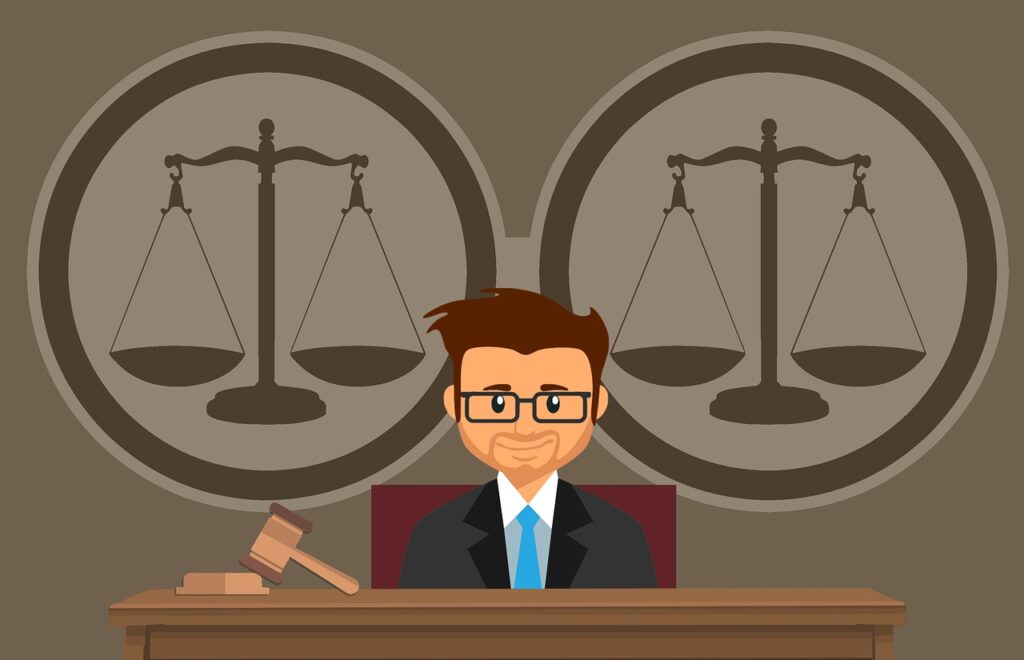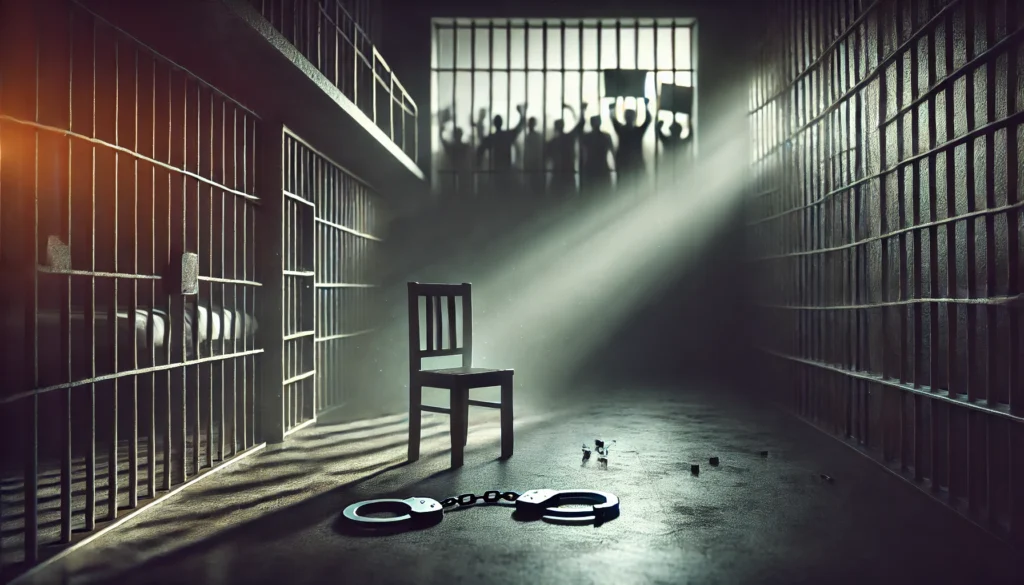Published On: 8th September, 2024
Introduction:
Freedom of speech and expression is a fundamental human right that is codified in numerous international human rights treaties and constitutions around the world. This right assures that people can freely communicate their opinions, ideas, and beliefs without fear of censure or punishment. It is a pillar of democracy, creating an environment in which diverse points of view can be heard and debated, thus contributing to societal progress and growth.
However, exercising this freedom is often fraught with difficulties and controversy. Balancing the right to free expression with other societal needs, such as public order, national security, and protection against hate speech, is a difficult undertaking. Various countries approach this balancing differently, reflecting their distinct cultural, political, and legal contexts.
In the digital age, the dynamics of free expression have changed. The Internet and social media platforms have magnified voices, allowing for worldwide communication and mobilization. However, they raise additional concerns about regulation, misinformation, and the role of private firms in monitoring material
In this article, we will try to address essential topics that need to be highlighted, such as the efforts of stakeholders or people to enjoy the freedom of expression and opinion in a positive and sound manner, free of flaws and errors. These themes are the definition of freedom of speech, the Historical Evolution of Freedom of Speech, Balancing hate speech laws with freedom of expression, Media and Press Freedoms, Freedom of expression in various international human rights instruments, Freedom of expression following emerging offenses, What the state must do to protect those accountable for rights and freedoms, Categories of Protected and Unprotected Speech, The impact of digital surveillance on free expression, and finally the conclusion and references.
Definition of Freedom of Speech:
Freedom of opinion and expression is frequently accompanied by certain sorts of rights and limitations, such as the right to religion, freedom of the press, and peaceful protest. The right to express one’s opinion Is fundamentally linked to the right to communication and knowledge. An individual’s interactions with other people, as well as his interactions with his own group and other nearby or distant groups. The right to communicate and know can be expressed orally, in writing, painting, or representation.
The right to freely express one’s views, free of restrictions or pressures, Is a fundamental human right equal only to the right to life. It is a right In and of itself, regardless of whether the expressed opinion Is valid or wrong, accepted or rejected by a majority or minority, authority or government. It is simply a study of the circumstances surrounding it, such as time and place. The freedom to voice an opinion may only be curtailed if it threatens the right to life of another individual or individuals. As a result, incitement to violence and murder does not fit under the purview of free expression because It may result in the death of an innocent person, i.e. the loss of other people’s right to life, which is more important than the right to express an opinion.
Freedom of opinion and speech is a human legacy that has resulted in centuries of conflict, revolutions, and attempts to restrict them. It is a global phenomenon that manifests itself in a variety of ways depending on the political systems, and social and economic structures in place.
Historical Evolution of Freedom of Speech:
After being sentenced to death, Socrates refuses to flee because he believes that because he has consented to the laws of Athens for seventy years and has enjoyed the rights and privileges conferred on him as a result, withdrawing his consent simply because his life is in danger is wrong. He contends, however, that his compliance with the law Is just as important to him as his disobedience to rules that would limit his belief and expression.
Plato also draws parallels to Socrates’ experience, stating that when a government attempts to limit a person’s freedom of opinion by passing a law, that person has both the right and duty to disobey the law, but when his life, stock, or property Is taken by law, he must comply.
The ancient Greeks established free speech as a democratic concept. The ancient Greek term “parrhesia” implies “free speech,” or “to speak candidly.” The phrase originally emerged in Greek literature at the end of the fifth century B.C. During the classical period, parrhesia became an integral feature of Athens’ democracy. Leaders, philosophers, playwrights, and ordinary Athenians were free to publicly debate politics and religion, as well as criticize the government in some cases
We travel to the United States, Bill Of Rights during the summer of 1787, a group of leaders, including James Madison and Alexander Hamilton, met in Philadelphia to design a new United States Constitution. Antifederalists, led by Virginia’s first governor, Patrick Henry, opposed ratifying the Constitution. They believed the new constitution granted the federal government too much power at the expense of the states. They also claimed that the Constitution lacked protections for people’s individual rights.
In numerous states, the discussion over whether to ratify the Constitution was centered on the development of a Bill of Rights that would protect basic civil rights under the law. Fearing loss, pro-Constitution politicians, known as Federalists, proposed a concession to the antifederalists a Bill of Rights.
James Madison authored the majority of the Bill of Rights. Madison, a Virginia representative, would later become the fourth president of the United States. He drafted the Bill of Rights during the first United States Congress, which convened from 1789 to 1791, the first two years President George Washington was in office.
The Bill of Rights, proposed to Congress in 1789 and ratified on December 15, 1791, contains the first ten amendments to the United States Constitution. *1
The amendments protected the freedoms of expression, religion, press, assembly, and petition. Subsequent amendments to the Bill of Rights addressed the protection of additional American ideals, such as the right to bear arms guaranteed by the Second Amendment and the right to trial by jury. *2
Balancing hate speech laws with freedom of expression:
The distinction between free expression and hate speech: Freedom of opinion and expression cannot be used to legitimize discrimination or hate speech. It has established boundaries between the concept of free expression and what constitutes discrimination and hate speech. It is known that the tension between freedom and authority frequently causes uncertainty about what constitutes a right and what constitutes a duty. Freedom of expression is frequently exploited and used as an excuse and pretext for the spread of ideas that threaten societal stability and national unity.
When discussing the relationship between hate speech and free expression, one of the most contentious issues arises. How to distinguish between a valid expression that cannot be prohibited or restricted and a phrase that results in a violation Other rights, such as the right to life, physical integrity, and enjoyment of human rights and freedoms without discrimination, may require state intervention to address them. *3
Media and Press Freedoms:
The link between free expression and media freedom. It is obvious from the international human rights instruments studied above that the right to freedom of expression demands, not only that everyone is free to express themselves, but that they are free to do so through a range of different types of media, including print, broadcast, or internet media, encompassing print, broadcast, and online media, subject to license regulations for broadcast media. *4
The international human rights instruments make It clear that freedom of expression encompasses the right to receive information and ideas. This is an essential element of the right. As a result, when a state acts to silence or curtail the operations of the media, whether print, broadcast, or online, It violates not only the expressive rights of the media and the journalists, editors, and publishers who work for them but also the rights of its citizens to freely receive information and ideas.
As a result, the globally recognized basic outlines of the right to free expression naturally defend the right of the media to express itself. Individuals’ expressive and informational rights are thus intricately connected to those of media organizations.
Freedom of expression in various international human rights instruments:
To understand what constitutes freedom and what does not, consider how international human rights instruments define the limits of freedom of expression. This section discusses the key provisions of numerous generally accepted human rights documents that define the internationally agreed-upon scope of the right to freedom of expression. Some issues of the international human rights instruments are discussed.
Universal Declaration of Human Rights. According to Article 19 of the Universal Declaration of Human Rights, ‘Everyone has the right to freedom of opinion and expression; this right includes the freedom to hold opinions without interference and to seek, receive, and impart information and ideas through any means and regardless of boundaries
International Covenant on Civil and Political Rights Article 19 of the ICCPR expands on numerous provisions of the Universal Declaration of Human Rights. It states that everyone has the freedom to hold their own opinions without interference. Everyone has the right to free speech, which includes the freedom to seek, receive, and transmit information and ideas of all sorts, regardless of borders, orally, in writing or print, in the form of art, or by any other means of his choice.
The African Charter on Human and People’s Rights The African Charter on Human and Peoples’ Rights (also known as the Banjul Charter) contains inadequate provisions regarding the right to freedom of expression. They do not provide the same level of protection for free expression as global mechanisms like the ICCPR.
Freedom of expression following emerging offenses:
Cybercrime law represents a fresh attack on freedom of expression. The passing of the so-called cybercrime law is another concerning development in Egypt, as it has escalated the current persecution of freedom of expression. The potential and power of social media have constituted a significant threat in many countries with restrictions. Egypt’s new law restricts freedom of expression and promotes self-censorship, posing a significant threat to civil society.
Egyptian legislation features strong regulations aimed at entirely limiting Internet freedoms. For example, the law makes it illegal to publish personal images of individuals without their knowledge, and those found guilty face harsh penalties.
What the state must do to protect those accountable for rights and freedoms:
State officials must condemn in plain and unequivocal terms attacks motivated by retaliation against individuals expressing their right to free expression, and they must refrain from making any statements that are likely to enhance the risk to those targeted for exercising their right to free expression.
States should take steps to prevent crimes against freedom of speech where there is a possibility of such crimes, as well as in cases where authorities know or should know that such crimes are likely to occur. Such action should not be restricted to situations in which individuals at risk seek protection from the state.
Categories of Protected and Unprotected Speech:
Business speech according to Central Hudson Gas & Electric Corp. v. Public Service Commission of New York, commercial speech limits for non-misleading statements about a permitted activity are normally subject to intermediate scrutiny. Such laws are lawful only If they directly advance a significant government interest and are not broader than necessary to achieve that goal. In recent years, the Court has been willing to apply a higher level of scrutiny to regulations that designate commercial speakers for less favorable treatment based on the content of their speech. In contrast, courts have occasionally applied “Zauderer review”a threshold more lenient than intermediate scrutiny but more strict than rational basis review to statutes demanding the disclosure of factual, undisputed information.
Unprotected Speech While content-based legislation is normally subject to stringent scrutiny, the Supreme Court has recognized that the government may restrict certain types of speech based on their substance, as long as it does so fairly. These categories are broadly defined by the Court as obscenity, defamation, fraud, incitement, fighting language, real threats, speech integral to criminal behavior, and child pornography. The contours of these categories have evolved over time, with many being severely restricted by the Court. Furthermore, the Court has been reluctant to broaden this list, refusing to acknowledge, for example, violent entertainment or portrayals of animal cruelty as new kinds of unprotected expression.
The impact of digital surveillance on free expression:
Freedom of Expression and Privacy In the digital age, practically every action taken on the Internet has become an act of expression. Participating in an online chat, communicating with friends and coworkers, exploring websites, reading news, and downloading files all involve the transfer or accessing information. Online engagement generates and stores content, some of which is publicly available and most of which is shared by specific persons and organizations. However, each of these acts generates transactional data, which might be accessed by undesired parties. In contrast, practically every act of expression has been visible to telecom service providers. *5
The United Nations Committee on Freedom of Expression will give opinions on the issue of “Content regulation in the digital age”. In response, the organization addressed the threats to freedom of expression posed by developments in online content regulation and increased recourse, including in the following areas: companies’ compliance with state laws; corporate self-regulation initiatives; global clearance orders; insufficient consideration of the interests of employees facing certain risks in corporate conditions of service; availability of appeals and remedies; algorithm decision-making. *6
Conclusion:
Finally, freedom of speech and expression is an important cornerstone of democratic society, creating an environment of open dialogue, creativity, and growth. While this freedom is essential, it is not absolute and must be balanced against other community objectives such as public order, national security, and protection from damage. The digital age brings new opportunities and difficulties for free expression, necessitating careful regulation and responsible use of technology, In the essay, we discussed these molecules:
-Freedom of opinion and expression is frequently accompanied by particular types of rights and constraints.
-In the historical evolution of freedom of speech.
-The freedom of opinion and expression cannot be used to justify discrimination or hate speech.
-Universal Declaration of Human Rights. Article 19 of the Universal Declaration of Human Rights states.
-The cybercrime law marks a new attack on free expression.
-States should take action to prevent crimes against free expression where such crimes are possible.
-Categories of Protected and Unprotected Speech.
-The impact of digital surveillance on free expression.
Finally, maintaining a commitment to protecting and promoting free speech and expression is critical for the growth of human rights and the well-being of nations around the world.
References:
1/The Bill of Rights; White House.
History of the First Amendment; The University of Tennessee, Knoxville.
Schenck v. United States; C-Span.
2/ Annd Arab NGO Network for Development.
3/ 12 Michael Bratton, ‘Civil Society and Political Transition in Africa’. Institute for Development Research
Reports, 11(6), 1994, p 2. https://www.issuelab.org/resources/19673/19673.pdf [accessed 26 April 2019].
4/In accordance with article 10, paragraph 2, of the European Convention.
5/ An English version of an article in the September issue of Cuestión de Derechos, written by Privacy International’s Head of International Advocacy, Carly Nyst.
6/ Article 19. ARTICLE 19’s Submission to the UN Special Rapporteur’s consultation on online content regulation. London: Article 19, 2017. https://www.article19.org/wp-content/uploads/2017/12/171219-UNSR-Consultation-on-Content-Regulation-December-ARTICLE-19.pdf



